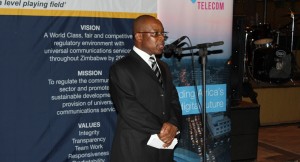
LIQUID Telecom Zimbabwe has revealed that it has so far invested a staggering $32 million in contactors responsible for the trenching and laying of their fibre optic cables project nationwide in the past 5 years.
The managing director of Liquid Telecom Zimbabwe, Wellington Makamure said that in building and growing their fibre structure in Zimbabwe, they have engaged 50 contractors in building the infrastructure. These companies have employed over 5 000 workers downstream to assist with our network.
Liquid Telecom is playing its part in employment creation. Liquid Telecom initially rolled out their fibre optic project in the Central Business District (CBD) connecting enterprises to their fast backbone cable boosting connectivity speeds with real broadband speeds.
They have also registered a success in being the first company in Zimbabwe to connect homes to fibre optic cables through their Fibre to the Home (FTTH) project which has seen Liquid Telecom trench past many residential areas and making them ready for fibre.
FTTH broadband connections already are a reality for more than 1 million consumers in the United States, while more than 6 million in Japan and 10 million worldwide enjoy its benefits, according to Broadband Properties Magazine. Many believe making FTTH technology the standard in connectivity will solve the forecasted Web traffic jam.
Today they are rolling out their project connecting industries and businesses together, towns and cities stretching across the length and breadth of the nation as they cascade their high speed underground nationwide under fibre-to-the-premises (FTTP)
According to the: Federal Communications Commission DSL or coaxial cable, for example, a single copper pair conductor can carry six phone calls while a single fibre pair can carry more than 2,5 million phone calls simultaneously making broadband virtually unlimited.
- Chamisa under fire over US$120K donation
- Mavhunga puts DeMbare into Chibuku quarterfinals
- Pension funds bet on Cabora Bassa oilfields
- Councils defy govt fire tender directive
Keep Reading
Makamure also revealed that they are now laying an average of 4km of fibre optic cable in Zimbabwe daily a 100% increase from last year`s average of 2km with a current national total of more 5 500 km laid so far.
More than 50 renowned contractors are working together with Liquid Telecom to bring the fibre dream to Zimbabweans across the nation. This creates unique employment opportunities for the locals in various towns and cities in Zimbabwe.
As the hype surrounding the trenching activity continues, documents availed by Liquid Telecom show that the number of employment opportunities created downstream are set to increase. More than 5 000 jobs have been created on this project to date.
This has ultimately impacted the socio-economic growth, alleviation of poverty in Zimbabwe and increase in technological penetration within the population.
Speaking during the recently held e-tech Africa conference, The Liquid Telecom managing director noted how important and imperative it is for all ICT players to continue working towards sustainable projects to stir the economy.
“The Zimbabwe government has acknowledged the role of ICTs and developing infrastructure as fundamental to the economic growth. The ZimAsset clearly pronounces ICTs as a major player in developing this economy and as all players involved, we have a role to turn around our economy via ICTs” Makamure said.
In his remarks, he also acknowledged the need for players to share infrastructure and said as Liquid their job is to facilitate communication within Zimbabwe and the rest of the world.
“Let’s work together, let’s share the services, lets share the infrastructure where possible, that is what the government expects but that is also the best for all of us as players in the ICTs to drive the growth our economy” he said.











